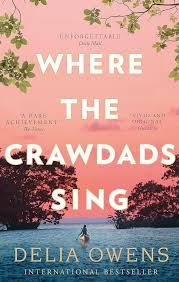17. Crossing the Threshold
byCrossing the Threshold takes a profound turn in 1960 as Kya, the solitary young woman of the marsh, faces a moment of crisis. When Jumpin’ informs her that Social Services has been inquiring about her, Kya is overwhelmed by the fear of being separated from the only world she knows. The authorities’ questions about her father, her education, and her frequent visits to Jumpin’s wharf shake her to the core. Living in isolation for so long, she is suddenly confronted with the very real possibility of being uprooted and placed into foster care, a thought that fills her with dread. In response to this threat, Kya seeks a safer place to hide, retreating even further into the marshlands. After confiding in Tate, Kya decides to meet in a secluded cabin they know, where they can continue their learning sessions away from prying eyes. The cabin becomes a symbol of safety and defiance, a sanctuary for both their growing bond and Kya’s intellectual development. During their time in the cabin, they delve into A Sand County Almanac by Aldo Leopold, a book that captivates Kya with its poetic nature and environmental insights, deepening her connection to the world around her. Leopold’s work provides Kya with a deeper understanding of nature and the beauty of life’s delicate balance, further shaping her personal growth.
Summer unfolds with Kya embracing both the isolation she knows and the newfound connection she shares with Tate. As she spends more time with him, Kya finds herself learning not only about nature and poetry but also about herself. The creative act of writing poetry becomes a way for Kya to express the emotions she has long kept locked inside, giving her an outlet for her loneliness, her desires, and her frustrations. Through these poems, she transforms her pain into something beautiful, finding strength in the very solitude that has both defined and constrained her. Kya’s personal growth is evident as she navigates the complexities of growing up. The arrival of her first menstrual cycle causes confusion and embarrassment, especially in front of Tate, but with the comforting guidance of Mabel and Tate’s continued support, she begins to accept the changes that are part of becoming a woman. These moments of vulnerability in Kya’s journey toward self-acceptance reveal her evolving sense of self, driven by both intellectual curiosity and emotional discovery.
The emotional connection between Kya and Tate, which has been slowly building, now stands at the forefront of their interactions. As Kya navigates the hurdles of adolescence, and Tate opens up about his past struggles and losses, their bond becomes deeper and more intimate. Tate’s dedication to supporting Kya—whether through teaching her new things or simply being there for her—reveals a growing affection that seems to go beyond mere friendship. For Kya, these moments with Tate are more than just academic; they are a rare form of companionship and understanding in her otherwise lonely existence. This chapter highlights how human connection, even in its most tentative form, can spark transformation. Kya, who once believed she could rely only on herself, begins to allow herself the possibility of a deeper emotional connection. Tate’s respect for her boundaries, combined with his gentle affection, creates an environment where Kya can explore her own emotional depths while learning to trust in the kindness of others. This narrative beautifully weaves together themes of personal growth, emotional resilience, and the healing power of human connection, all set against the backdrop of the marsh and its natural beauty. Kya’s journey of self-discovery is illuminated through her evolving relationship with Tate, her intellectual growth, and the gradual acceptance of both herself and others.


